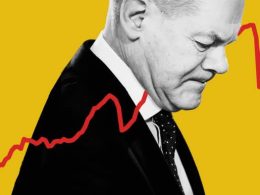Unlock the White House Watch newsletter for free
Your guide to what the 2024 US election means for Washington and the world
Robert F Kennedy Jr is working on plans to rid a doctors’ lobbying group of control over a lucrative part of Medicare billing, as he takes on vested interests in the world’s costliest healthcare system, according to people close to discussions.
Kennedy, who last week Donald Trump tapped to run the US health and human services department, has held discussions with advisers about how to remove the American Medical Association from its role in drawing up Medicare’s billing codes, which set doctors’ fees for more than 10,000 procedures, ranging from laboratory tests to chemotherapy.
The plan would bring an upheaval to a system that has been in place for decades — and marks the latest sign that Trump’s pick for health secretary, who has railed against everything from the widescale rollout of Covid-19 vaccines to industry’s outsized influence over drug regulations, intends to take a hammer to the American health establishment.
Since the early 1980s, the US government has relied on the AMA, the industry body for more than 170,000 doctors, to maintain billing codes, known as the “current procedural terminology”, that determine how about a fifth of Medicare Part B’s $490bn annual budget is spent. Some 66mn Americans aged over 65 are covered by Medicare.
Kennedy’s team has discussed how the CPT process could be done in-house by the Centers for Medicare and Medicaid Services, according to three people briefed on the matter.
Kennedy’s plan would cause huge bureaucratic upheaval for Medicare and threaten the AMA’s biggest revenue stream. Republican lawmakers previously considered changing the system but baulked at the complexity.
The discussions show how influential Kennedy, known as RFK Jr, is likely to be in directing the Trump administration’s health policy agenda, an issue that did not feature heavily in the president-elect’s campaign. Kennedy has been vocal about taking on the healthcare industry’s influence over policymaking. On Tuesday, Trump appointed TV doctor and former Republican Senate candidate Mehmet Oz as CMS head.
In a post on X following his nomination, Kennedy vowed to “clean up corruption, stop the revolving door between industry and government, and return our health agencies to their rich tradition of gold-standard, evidence-based science”.
The nomination of the former Democrat, who ran as an independent candidate in the presidential election before endorsing Trump, could face a tricky Senate approval process. Pharmaceutical executives have been alarmed at his nomination, which has hit biotech stocks because of his scepticism towards vaccines.
Reforms to the CPT codes would also represent an existential threat to the AMA, which generates more than half of its $495mn annual revenues from its CPT work. A person close to the lobbying group said reforms of Medicare’s billing system could unleash as much chaos as the hack of UnitedHealth’s Change Healthcare division, which affected 100mn patients and roiled healthcare providers for months.
Medicare has no obligation to accept the proposals of the AMA committee, which meets three times a year to update physicians’ billing codes, but it typically accepts the proposals.
The AMA and a representative for Kennedy declined to comment.
Robert Berenson, a CMS official under the Clinton administration who is now senior policy fellow at the Urban Institute, a think-tank, said changes to the codes “would cause chaos without a flight plan about what’s next”.
Berenson pointed out that some other Medicare billing codes are drawn up in-house by the CMS, but he said even if an alternative were found, doctors and the AMA would be “very unhappy” with the change.
Source link









